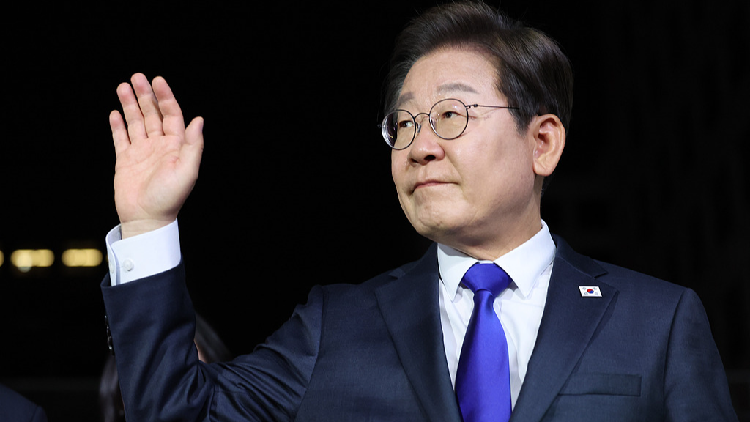South Korea's New President Promises to 'Heal Wounds' with North Korea in Effort to Improve Relations
South Korea's new President Lee Jae-myung pledges to engage with North Korea and foster reconciliation in his inaugural address.

South Korea's newly inaugurated President Lee Jae-myung pledged to initiate a new era of engagement with North Korea, emphasizing national reconciliation and dialogue in his first address after assuming office on Wednesday. Lee, who emerged victorious in a snap election following his predecessor’s contentious imposition of martial law, described his administration’s mission as one to “heal wounds and foster peace” across the divided peninsula.
The snap election was called after an unprecedented political crisis led to the ouster of former President Yoon Suk Yeol. With a landslide vote against conservative rival Kim Moon-soo, Lee secured a strong mandate. His term commenced immediately after the official certification of results in the early hours, marking a swift transition amid ongoing tensions both domestically and with the North.
Shortly after the inauguration, President Lee spoke directly with South Korea’s top military officer, formally assuming full operational control of the nation’s armed forces. In remarks to military leaders, he urged continued vigilance, instructing them to maintain a high level of readiness should provocations from Pyongyang arise. However, Lee simultaneously extended an olive branch, stating his willingness to open talks and pursue peaceful solutions to longstanding disputes.
This approach represents a notable shift from the policies of his predecessor. Under Yoon, Seoul adopted a hardline stance, often conditioning dialogue with the North on strict preconditions. Lee’s openness to talks without such prerequisites has been described by analysts as a “significant departure” and could mark a fresh chapter in inter-Korean relations. Political observers highlighted that such flexibility may create opportunities for renewed diplomatic engagement, though the response from Pyongyang remains uncertain.
The inauguration ceremony itself reflected the extraordinary circumstances of Lee’s ascent to power. Eschewing the large, festive outdoor gatherings typical of presidential inaugurations, Lee opted for a more subdued event inside the National Assembly, attended by just a few hundred guests. The modest affair was seen as both a nod to the gravity of recent events and a signal of the new administration’s focus on stability and governance.
Later in the day, Lee was expected to return to the presidential office to begin the process of appointing key cabinet officials. Political insiders are closely watching his choices for prime minister, presidential chief of staff, and director of the National Intelligence Service—a team that will be instrumental in shaping both domestic recovery and the path forward with North Korea.




